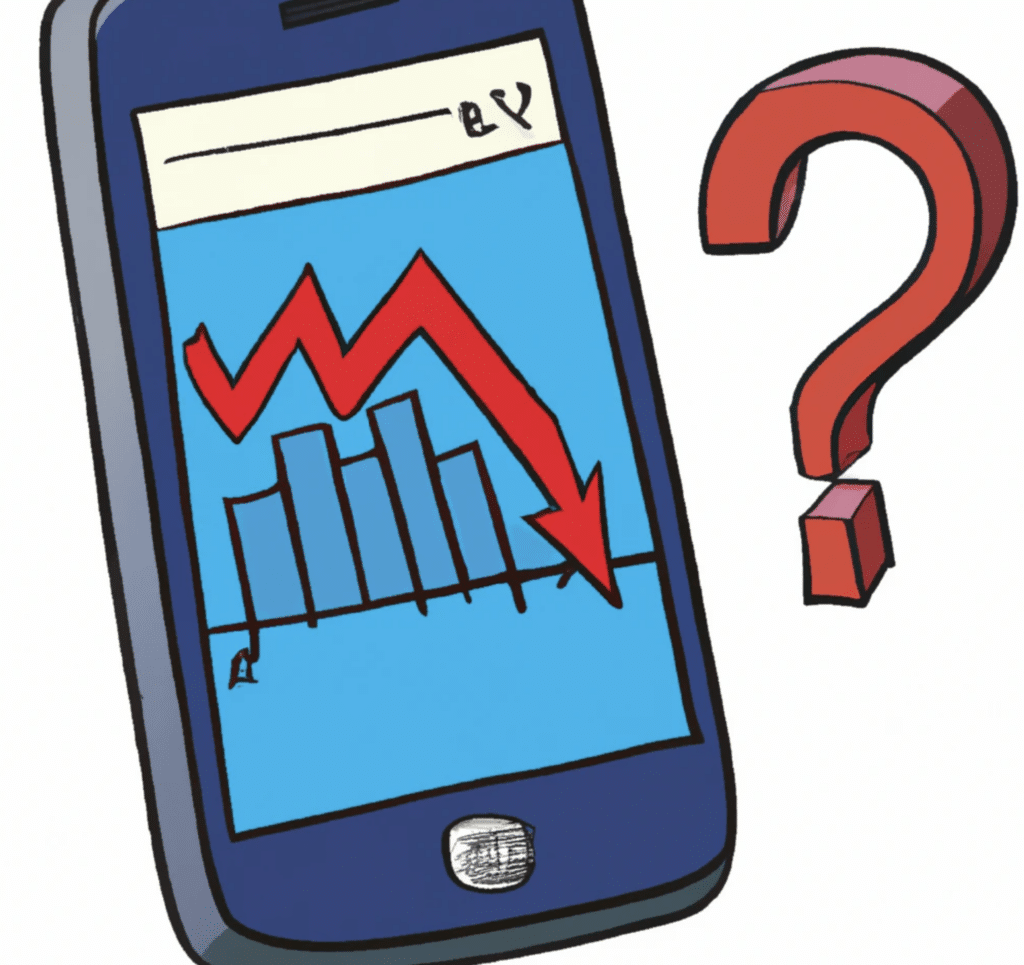What are the Risks with Trading Apps
Most traders must have noticed the explosion of trading apps in the market. From the palm of their hand, they can access the global markets with just a tap, with all assets they can think of available for trade. But, be aware. The fantastic help you get can sometimes overshadow the underlying risks. To master the art of financial trading with trading apps, you need to understand the risks to be successful.

1. Overview of Trading Apps
So, what exactly are trading apps? They’re digital platforms, available on mobile devices, which offer a smooth approach to trading in the financial markets. For a deeper insight, you can look at our comprehensive guide on trading apps.
Now, while these apps bring the market to your fingertips, their rise is not just due to convenience. They come packed with plenty of benefits. From real-time market updates to advanced charting tools, the advantages seem endless. Curious about the top benefits? Here’s a detailed breakdown of the three major perks that might allow you to boost your trading game.
2. The Key Risks with Trading Apps
Trading apps have revolutionized how investors approach the financial markets. However, for every innovation, there lies potential risk. By learning and being aware of these risks you optimize your chances of success in your trading.
i. Security Concerns
- Potential for hacks and data breaches: As cyber-attacks become more sophisticated, the risk to your personal and financial information increases. Unprotected apps can become a goldmine for hackers, leading to potential monetary losses and identity theft.
- Importance of strong encryption: Encryption is the frontline defense against cyber intrusions. Ensuring your chosen app employs state-of-the-art encryption techniques can be the difference between secure trading and a security nightmare.
ii. Operational Glitches
Technical glitches can turn a profitable opportunity into a missed one.
- Server downtimes: Markets don’t wait. A downtime during a critical trading moment can be catastrophic to your strategy, potentially leading to financial setbacks.
- Lag and order mishaps: A delay of a few seconds might distort the real-time data you rely on, causing potential misjudgments. Furthermore, system bugs can lead to incorrect order placements or unanticipated trades.
iii. Hidden Fees and Costs
“Free” often comes with a catch in the trading world.
- The reality behind “commission-free” trading: Many apps market that they take zero commissions. However, this often masks other fees. From spread mark-ups to overnight holding costs, the devil will be in the details.
iv. Lack of Comprehensive Features
Every trader has unique needs, and not all apps cater to them uniformly.
- Basic vs. Comprehensive: While some apps might be great for beginners, they might lack advanced charting or analysis tools essential for advanced traders. Recognizing where an app falls short can help in making informed decisions. Dive deeper into a comprehensive list of app features with our guide here.
v. Over-reliance on Mobile Trading
Trading is about strategy, and putting all faith in one platform might not be the most strategic move.
- The mobile trap: While mobile trading offers excellent convenience, it’s important not to become too reliant. Diversifying across desktop platforms or web interfaces reduces risk and offers a broader toolset.
Risks at a Glance: Trading App Concerns
| Risk Category | Key Concerns |
|---|---|
| Security | Hacks, Data breaches, Weak encryption |
| Operational Glitches | Server downtimes, Lag, Order errors |
| Fees and Costs | Hidden charges, Spread mark-ups, Withdrawal fees |
| Feature Limitations | Basic toolsets, Absence of advanced analytics |
| Over-reliance on Mobile | Lack of platform diversification, Missing out on desktop-specific features |
3. Special Mention: Stock Trading Apps
Stock trading apps, a subset of trading platforms, have carved a niche for themselves. But they come with their own set of challenges. The stock market’s volatility, combined with app-specific risks, means double the vigilance for traders. For a closer look at the ins and outs of stock trading apps, you can browse through our dedicated section.
4. Tips to Mitigate These Risks
Entering the trading world with a strategy isn’t just about market trends, it’s also about being proactive against potential pitfalls. Here are some key strategies to consider:
i. Do Due Diligence when Choosing Your Trading App
Before committing to an app, research is your best friend. Look for user reviews, expert evaluations, and make sure that the app caters to your trading needs.
ii. Update Your App Regularly
Security threats evolve, and so do the defenses against them. By regularly updating your trading app, you make sure that you benefit from the latest security patches and technical improvements.
iii. Diversify Your Trading Methods
Don’t put all your eggs in one basket. Just as you’d diversify an investment portfolio, diversify your trading platforms. Using a combination of desktop, web, and mobile interfaces can add layers of security and flexibility.
iv. Keep an Eye on the Terms and Conditions
Yes, it’s tedious. But the fine print often contains details about fees, data usage, and other critical aspects that might affect your trading experience. Periodically review them to stay informed.
5. Wrapping Up
In the dynamic world of digital trading, apps have certainly carved a niche for themselves, offering unmatched convenience and accessibility. However, trading apps also come with risks. By staying informed and aware of these associated risks, you position yourself for becoming a more successful trader.
When you start or continue your trading journey, never stop learning. Equip yourself with the knowledge and resources necessary to navigate the world of trading apps with confidence. For more insights and guides on the topic, be sure to explore FxExplained’s comprehensive section on the best trading apps in the UK.